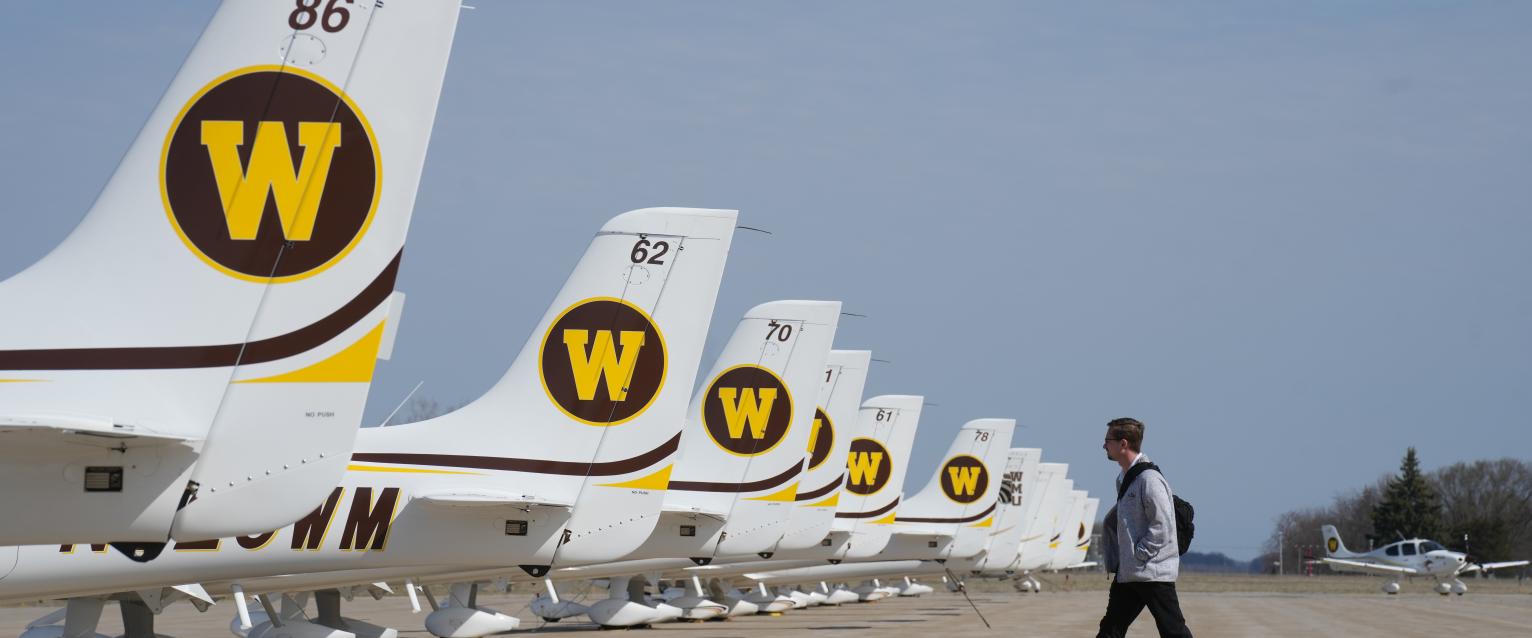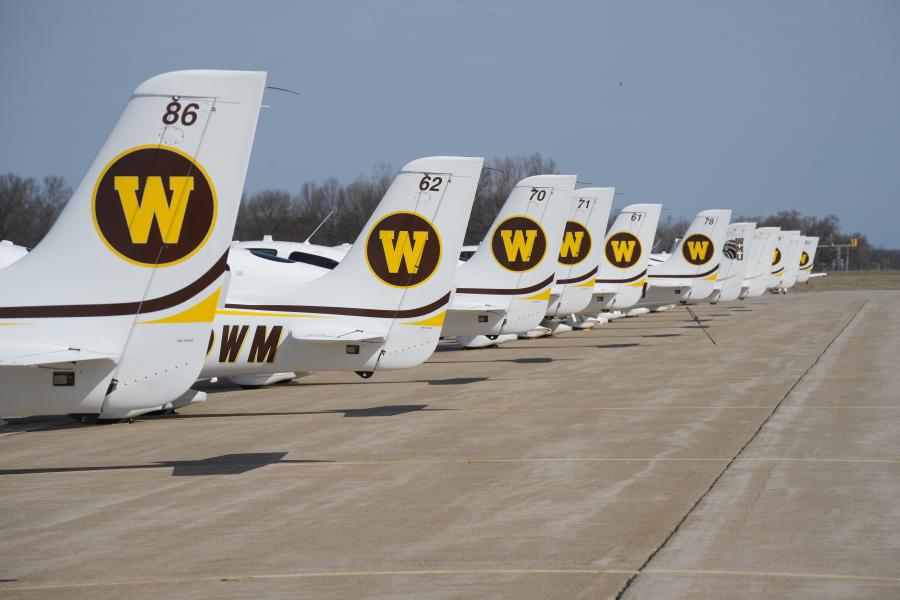I loved the fleet of aircraft, the overall campus feel, and the backup routes that were available if flying fell through. On top of that was the very professional way the tours of Western's main campus and the College of Aviation facilities were conducted. It all made me feel comfortable choosing WMU.
I really like the people at the College of Aviation. Everybody is very accepting and supportive. They're willing to work with you and help, no matter the situation. I generally feel accepted into this industry.
The people here have been so kind, welcoming and helpful in every way. Whenever I'm struggling with just about anything, there is always someone on campus I can go to.

Admissions criteria
Academic majors, minors and training options
Direct Career Pathways
Learning outcomes
All of our learning outcomes are based on the specific program you choose and are measured in a number of ways and analyzed holistically. We combine intellectual and practical application to determine whether you meet your program's objectives and assess your skills on a regular basis. As we constantly strive to find new and better ways to improve our programs, our goal is for our students to graduate with confidence in order to meet the demands of the field.

Still unsure?
Discover whether Western's College of Aviation has the right program to take your educational and professional goals to new heights.










